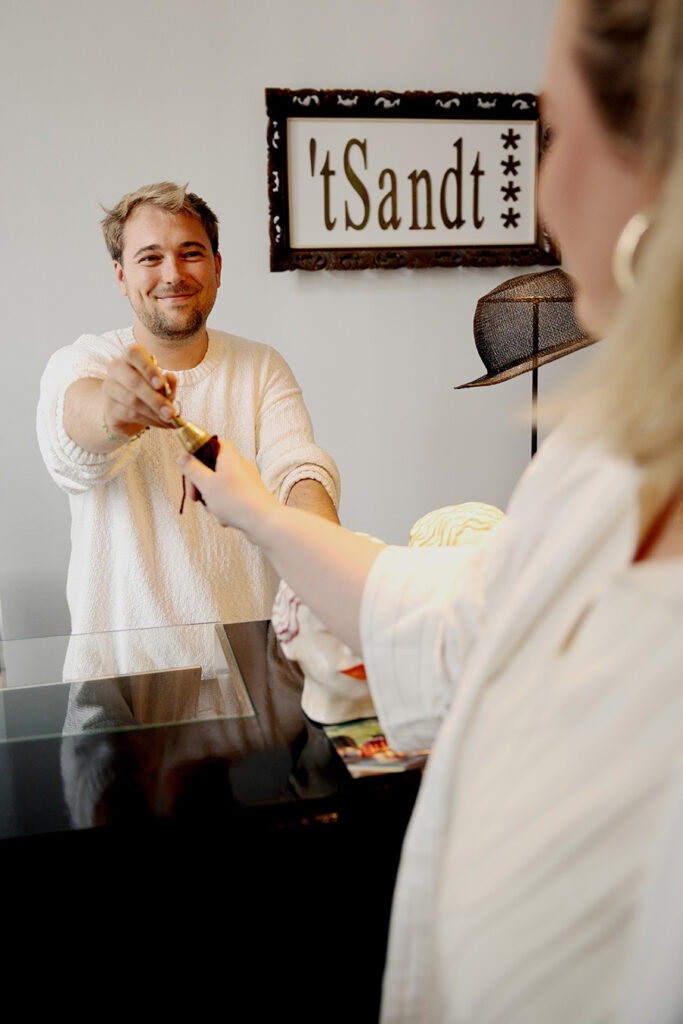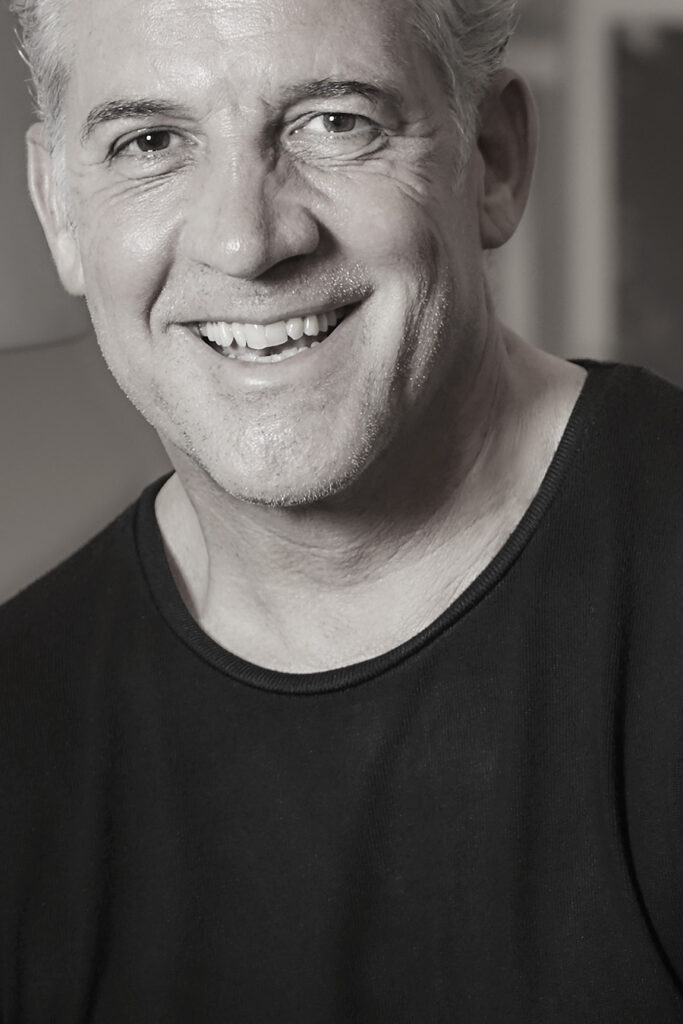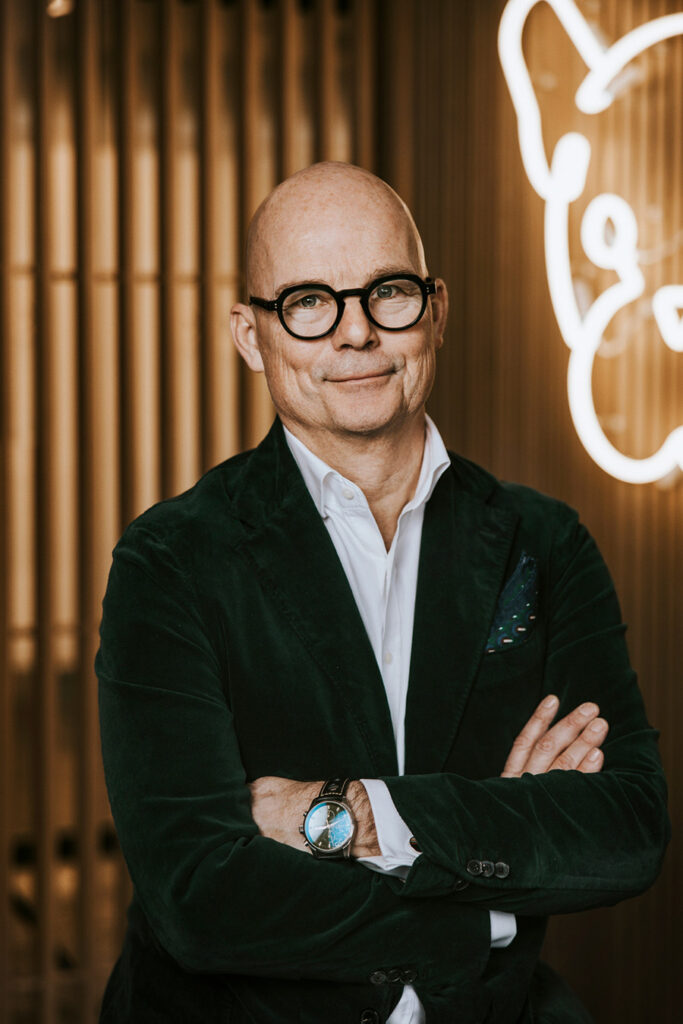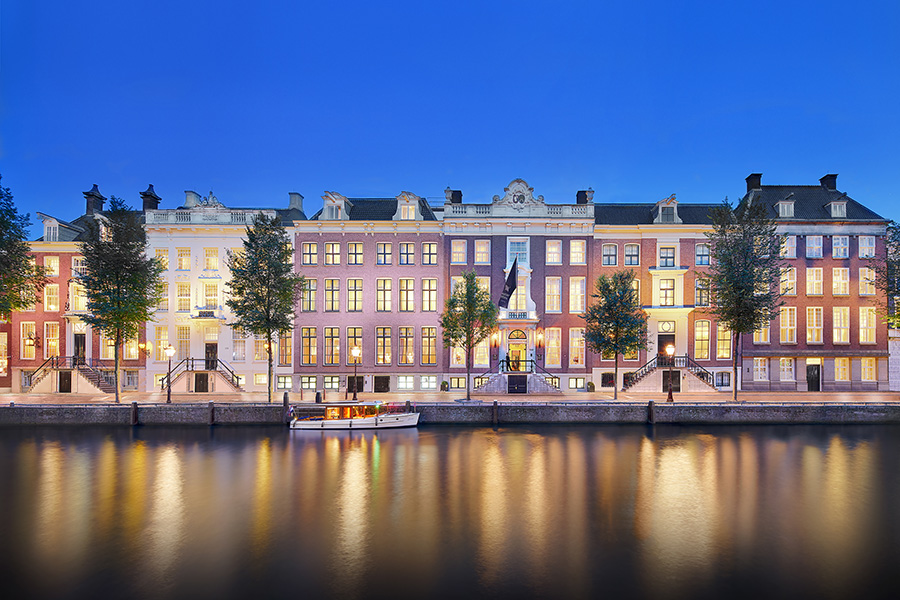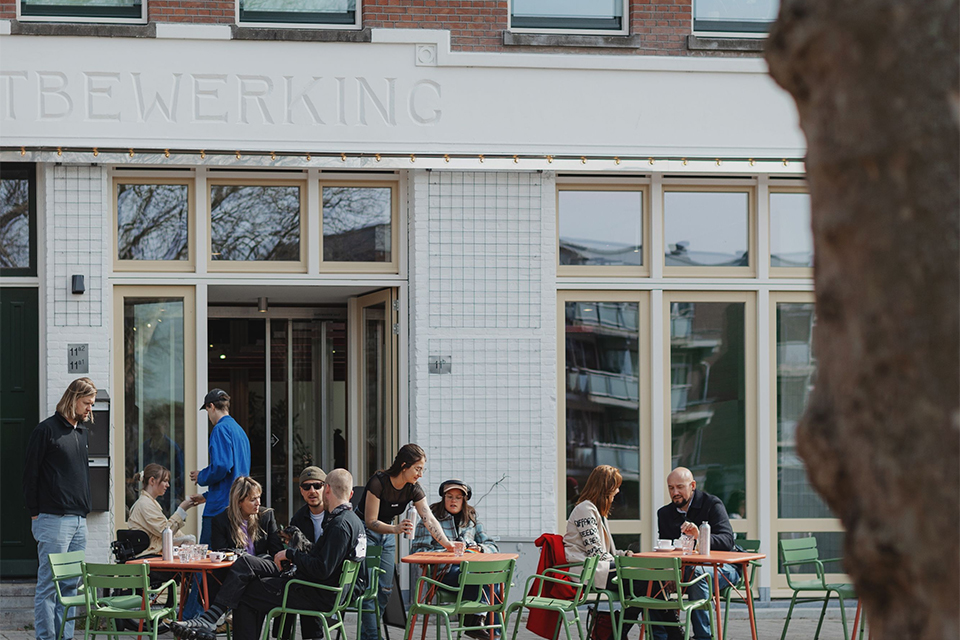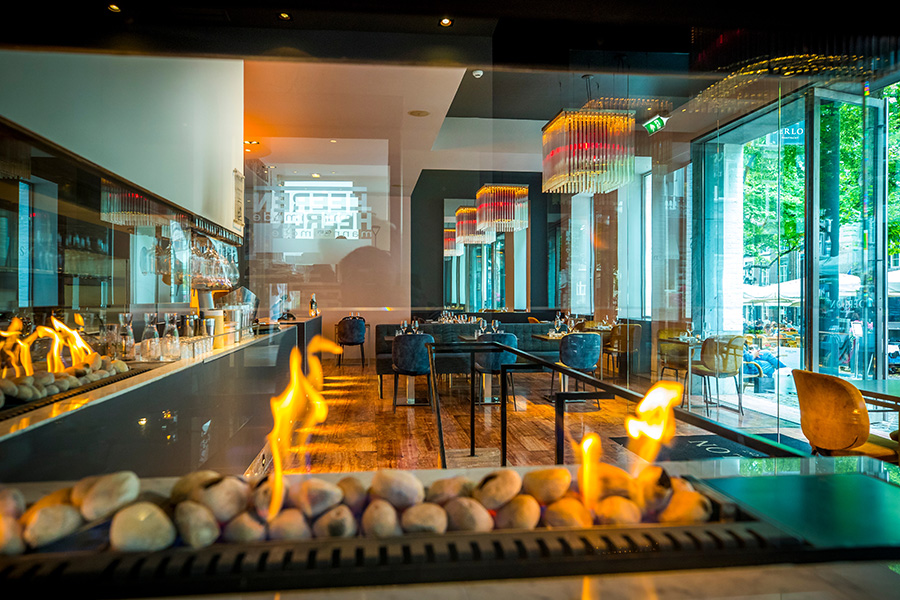
Hotel experience may determine future of healthcare
Mutual inspiration between healthcare and hospitality
In the healthcare sector, the concept of 'care hotel' remains a fairly rare one in practice. This has a lot to do with regulations on healthcare funding. But in practice, can't healthcare simply integrate some hotel services? And can the hospitality sector also learn something from healthcare? We put our light to some experienced practitioners.
Hans Maréchal founded M+R interior architecture (Eindhoven) in 2000. His firm drew for, among others, care hotel Udens Duijn in Uden (2013). "But we also work a lot for hospitals," he says. "In both cases it's about creating an environment that contributes to recovery. Hospitals used to be purely functional, with a strong emphasis on hygiene. The line between healthcare environment and hotel or home was sharp and often stigmatising."
The corona pandemic changed this. The boundaries between work and private life blurred with working from home and the focus on atmosphere and experience also grew in hospitals. "Hygiene remains essential, but today there is room for new perspectives. Think of hospices for palliative patients, Ronald McDonald houses and other initiatives where family members stay close to the patient in a homely setting. The need for customised, individualised care is increasing."
Atmosphere, sound and division of labour
"Those with experience in only one sector do not recognise all the problems. In the healthcare sector, especially in hospitals, the unnatural beeping sound of numerous medical
devices as a matter of course. But those who come from hospitality hear immediately how stressful it can be. Hospitality professionals know how to create a pleasant atmosphere and are strong at organising an efficient division of labour."
Maréchal's daughter works as a doctor at the Jeroen Bosch Hospital in 's-Hertogenbosch. "As a result, I can see that healthcare providers talk to people more and are usually very passionate about their work. That human scale and empathy can be an example for the hospitality sector, where the approach is more formal. Cross-pollination can be about learning how not to do things through a look at the other sector. I am thinking of aspects such as safety and hygiene."
Motivation
"Indeed, the choice to work in healthcare happens more from a kind of vocation," confirms Sandy Cannuyer, business manager of hotel 't Sandt in Antwerp. "In hospitality, the motivation is more diverse." She sees both parallels and differences. "In the healthcare sector, care provision weighs on and you need very specific know-how for a lot of jobs. Training there is marked by fixed patterns. Similarly, the functions performed are given tighter delineations and there is less room for creativity than in hospitality. There, working procedures are less rigid. But because you find many more employees here with a less sharp training or pre-training path, good coaching there is essential."
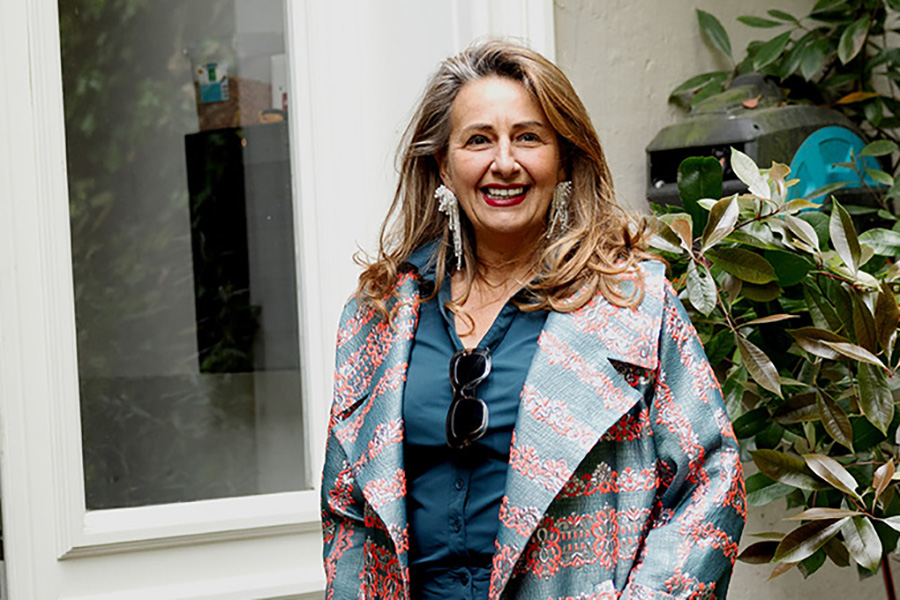
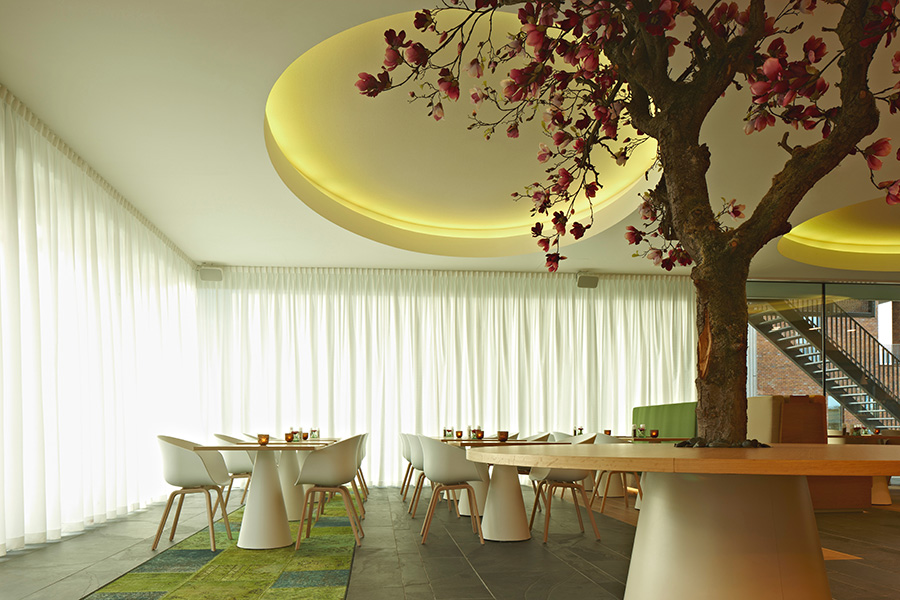
Hourly schedules
't Sandt is an 1850 Louis-Philippe-style mansion converted and renovated into a hotel with 29 rooms, in the historic centre of Antwerp. The Louis-Philippe style is known as the first "homely" architectural style. "An advantage of a small and independent company is that you can work more tailored to individual clients. But being available 24/7 also has a price. It demands a lot more from each employee. We already experienced someone taking additional training to switch to a healthcare organisation, because there are more comfortable hourly schedules for various jobs there. That is more difficult for us, but we do offer a flat hierarchical structure and strive for decent remuneration, respect and appreciation for every employee."
Some issues play out in both sectors, albeit in different ways. "The new generation of hotel guests is more sensitive to price but expects the same service. In our heritage building, the rooms are very large, so they also require more operating costs. That's why we choose in our
planned expansion for smaller rooms."
Smaller and cosier
Cannuyer expects the residential care sector to evolve significantly. "New generations of customers are also coming there. I notice that seniors' image of residential care centres is anything but positive. At the same time, they fear loneliness if they continue to live individually, which is why I see opportunities for cohousing and initiatives in which collective residential care is divided into small units, with their own domestic activities, creating a cosy atmosphere and promoting contact with generational peers. A more cosy and attractive care product, so to speak."
"In both sectors, it is people that make the difference," underlines Willem van der Zee, director of operations at Pandox, general of The Hotel in Brussels and president of the Brussels Hotel Association (BHA). "But philosophically and organisationally, they are completely different sectors. For instance, care is a basic right and hospitality is a voluntary choice. In care, urgency prevails, in hospitality the customer experience. In hospitality, you can act like a demanding customer regardless of the necessity of your demands. Just look at the different types of rooms.
It is more of a corporate environment, with more room for individual choices. In contrast, a lot of healthcare organisations operate in the non-profit sector. Much of the offering - food, sleeping, sanitary facilities, etc. - is similar for each user."
Workload
"In the healthcare sector, interactions with people are more minute. This is necessary, because when something goes wrong it can have far-reaching consequences. And while there are some seasonal fluctuations in hospices, in healthcare you have to work 24/7 365 days a year. In hospitality, you have predictable periods with a lower workload."
Stars
"In healthcare today, there is no system like the star rating in the hospitality industry," notes Van der Zee. "It is therefore difficult to compare the customer comfort of care institutions. Fortunately, initiatives like that of Gault & Millau are emerging. At the request of caterer Aramark, this restaurant guide audited the kitchens, table service and dining room layout of a number of residential care homes in 2024. Earlier, G&M inspectors also vetted the kitchen of AZ Groenige in Kortrijk. In the residential care sector, you can opt for a premium formula, though, with a number of private providers. In the public and non-profit sector, the offer is based on legal requirements."
Within the healthcare sector, it is very difficult to find people with the right qualifications for certain positions. "That's where hospitality can provide inspiration," Van der Zee believes. "Especially through the existing training programmes." He sees further opportunities for interaction. "A lot depends on the available budget, but hospitality can inspire healthcare in terms of interiors and atmosphere. In residential care centres, meals are usually put on the table in fixed-sized packages and volumes. Why shouldn't they use a buffet formula for residents who are still sufficiently self-reliant? For breakfast and coffee breaks, that should work, right? In other areas, healthcare can inspire hospitality, such as in working with lower budgets."
Aiming at wider audience
Eric van Dalsum can look back on a long and varied previous international career in both the residential care and hotel sectors, including as general manager of Radisson Blu Nice. From his hotel experience, he is building a renewed meal experience at Care Company Antwerp, where he was appointed director of hospitality & facilities in 2023. "Besides eighteen residential care centres, the Care Company operates fifty service centres. We also want to make these attractive to an external audience. Not only elderly local residents, but also younger people and employees of companies and offices in the area. In provisionally three service centres, we offer a small à la carte in addition to a three-course meal at a reduced price. The organisation is similar to that of a neighbourhood bistro. That makes for a very different meal experience."
Local preparation
"In our residential care centres, we are introducing decentralised meal preparation by ward. This means much more than creating a homely atmosphere. Meals are no longer prepared in a basement kitchen, but in sight of the residents. With the more pleasant experience, we turn meals into social moments. This also reduces the risk of malnutrition. Elderly residents who are still able and willing can help prepare and serve meals. All this, of course, strictly within the hygiene guidelines of the Belgian Federal Food Agency. The menu changes with the seasons. Adjustments are made during a menu meeting four times a year. In principle, the chef visits the dining rooms once a week to keep in touch with the gastronomic wishes of the residents."
Tastes change
Van Dalsum sees wishes and tastes changing. "The current generation of elderly people still has fairly classic tastes. We make these people happy with chips, mussels, asparagus and well-cooked vegetables. I expect the next generations to want to taste crunchy vegetables and special requests, like the current offer of vegetarian and vegan dishes, are likely to increase. We already offer kosher and halal. In some places, as demand for these is highly site-specific. It doesn't require much effort, because our suppliers are already very familiar with those requests."
"In new building projects or major renovations, we are already modelling ourselves more on the hospitality sector in terms of design. This means, among other things, that we no longer use rooms as dining rooms and multi-purpose rooms at the same time. So the diners no longer feel disturbed by the bingo or billiard players and vice-versa."
Care and hospitality may be different in function and philosophy, yet opportunities for innovation lie in the interaction. Combining the best of both worlds creates care environments that are warmer, more efficient and more human.
